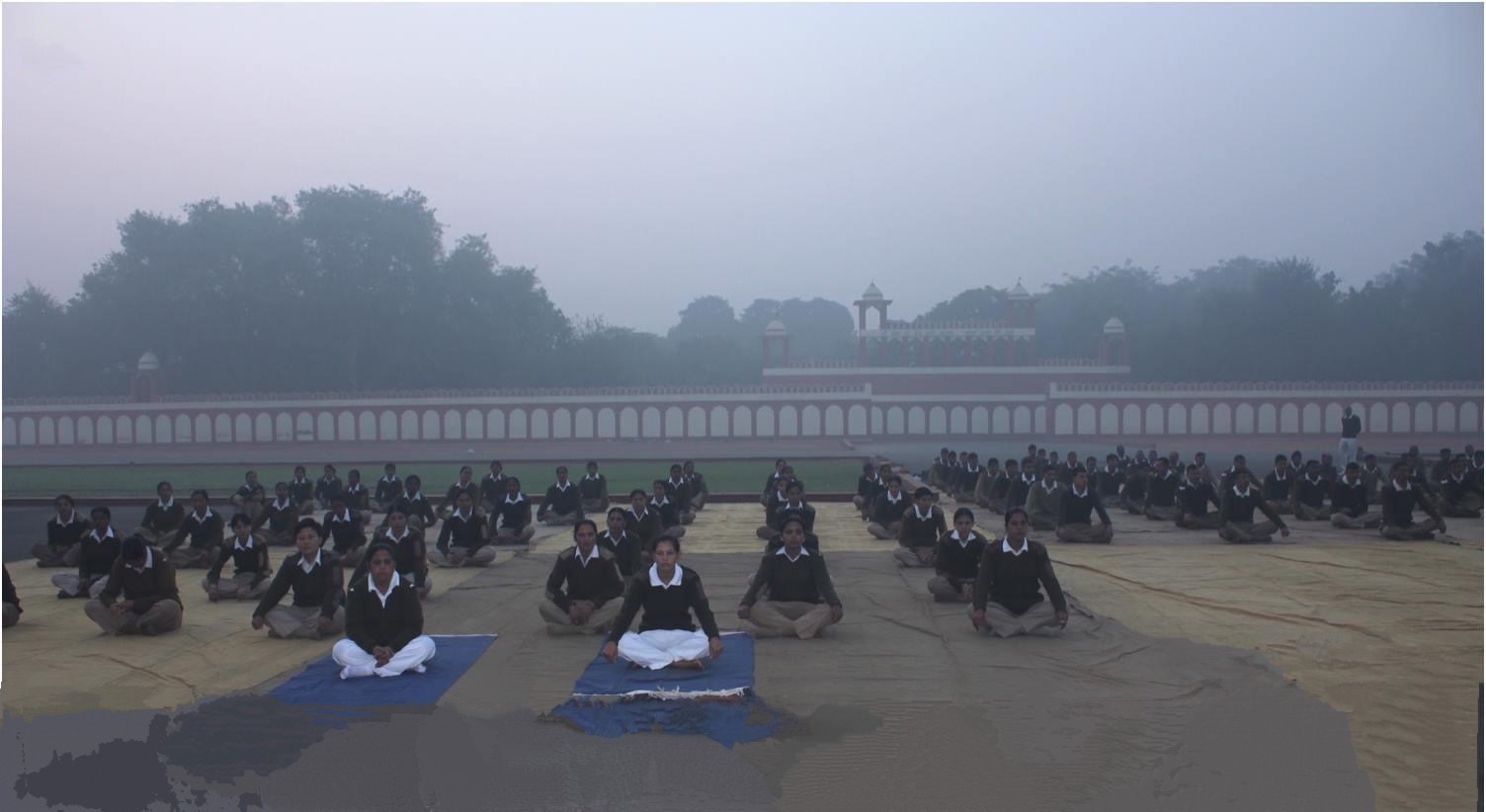
Control Over Thoughts
1 year ago By Yogi AnoopMastery Over the Senses: Control Over Thoughts
When discussing mastery over the senses, we must understand that it is not merely a mental concept but a practical experience. From the perspective of yoga and meditation, it becomes clear that we are the masters of our senses. In sensory actions, where both the motor senses (Karmendriyas) and sensory faculties (Gyanendriya) come under complete control, we become their masters. The more we develop the art of controlling our sensory movements, the more the electrical waves in our body and mind are directed toward the rhythm responsible for healing.
The essence of this discussion is that as the movement of the senses becomes calmer and deeper, the speed of electrical waves in the brain gradually decreases, and as a result, the body and mind begin to heal themselves. I refer to this state as “stable energy.”
Development of Capability Through Mastery Over the Senses
As we progress in mastering the senses, our ability to perform tasks increases significantly. Without exhaustion, the efficiency of these senses grows tremendously. This very ability helps develop infinite potentials that lie dormant in the brain, which an average person usually fails to utilize.
In my experience, leadership and mastery do not merely mean taking risks. Rather, it is about giving all ten senses a balanced and controlled rhythm while deeply engaging in any task for a long period. For any action, a certain level of relaxation in the senses is essential. If this relaxation reaches a moderate level, the immense power of the brain can be harnessed, and the senses can remain active for extended periods without fatigue. Based on my experience, in such a state, the likelihood of diseases occurring is almost negligible.
This is because all kinetic energy originates from potential energy. In my experience, merely experiencing stillness allows one to attain the level of potential energy, after which external or kinetic energy becomes abundant. Kinetic energy refers to the energy utilized in performing daily activities.
Experimentation and Control
On the path of spiritual practice, experimentation is of utmost importance. A master (Swami) is someone who, through their experiments on the senses, not only controls the movement of electrical waves in the brain but also regulates and refines the direction of the brain’s chemical reactions.
It is crucial to mention that during spiritual practice, a guru should not disclose subtle methods outright. This is because only after experimenting for several years does one fully comprehend the results. To ensure that disciples do not face any difficulties in the future, a guru does not reveal their experiments to society until they are completely certain. In fact, even their closest relatives or most beloved disciples should not be given such knowledge prematurely. This has been my experience.
The Role of Yoga and Meditation
When a practitioner or guru conducts experiments on any subject, there is always an element of nervousness. I have personally experienced this. Therefore, it is natural for an ordinary person to have doubts even about the practices prescribed by their guru.
However, one must note that in my experiments, I have found success not only through direct evidence but also through inferential proof. I have placed very little faith in other forms of evidence.
During the practice of meditation, pranayama, and asanas, many different states must be observed. However, as the relaxation of the senses and mind increases, and as the restfulness of the mind and brain deepens, success in these experiments follows accordingly.
Identifying a True Spiritual Guru
A spiritual guru who has mastered control over both their motor and sensory faculties is not limited to religious rituals or dogma. They do not confine themselves to ceremonial practices, as they have attained success through self-examination and self-discipline.
Even their bodily gestures, known in simple terms as “gestures,” can indicate the level of their spiritual experience. Another key trait of a true spiritual guru is that they do not seek excessive attachment to themselves.
True spirituality is devoid of deception. The real test of spirituality occurs when an individual recognizes their internal state and exercises control over their thoughts. A true spiritual guru does not mislead their disciples but rather connects them with reality.
From my experience, if a so-called spiritual guru teaches self-control through mere stories instead of their own experiences and experiments, it directly implies a lack of practical knowledge. Such a guru lacks true and practical experience, and even if they possess some, they fail to express it adequately. A guru’s indulgence in fantasy, presenting ideas without reasoning or testing them against wisdom, reflects a lack of practical understanding.
Personal Experience and Growth
A true personality and a genuine guru are those who continually evolve and take responsibility for mastering their own senses. They understand the flow of thoughts within themselves and, instead of being swept away by the river of thoughts, sit calmly on its shore—meaning they attain detachment.
Recent Blog
Copyright - by Yogi Anoop Academy
